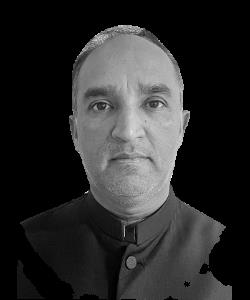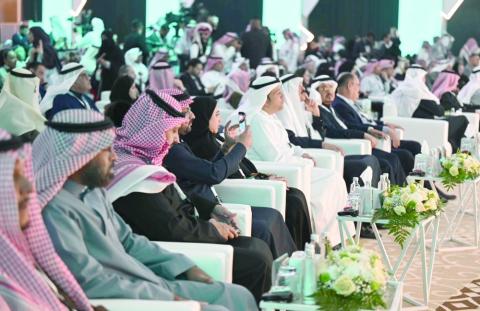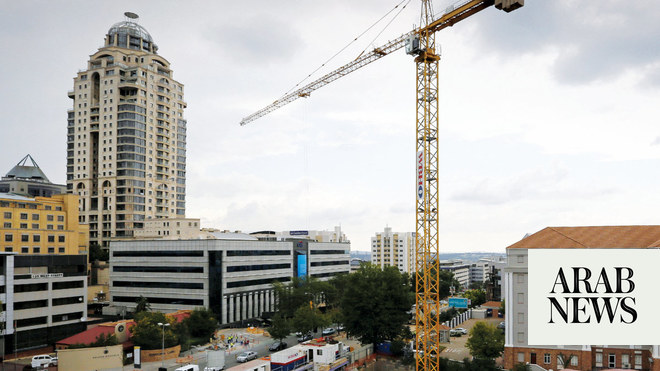
Will our jobs change significantly in the next five years? Of course they will. Has awareness grown by leaps and bounds on this subject? Indeed. Is the future of work undergoing a rapid transformation? Absolutely. So, what remains to be said on the subject? It is not the stimulus to change but the response to it that matters, which raises the question, are organizations watching and adapting?
Before jumping to conclusions, let us try to understand who belongs to this hyperaware workforce tribe? The term refers to an exceptionally alert, knowledgeable and responsive workforce in the ever-changing business environment. It describes employees’ heightened awareness and understanding of various factors impacting their organization, industry and market.
Empirical evidence suggests an elevated sense of perception among the workforce about the changes taking shape in the Middle East. The PwC Global Workforce Hopes and Fears Survey 2023, published last month, says 52 percent of those surveyed in the region, compared to 36 percent globally, believe their jobs will change significantly in the next five years, requiring them to acquire new skills and capabilities. Implicit in this data is a recognition that upskilling is critical to unlocking the future of work in a region undergoing transformative changes on multiple fronts.
With a rapidly evolving skills mix needed in today’s workplace, another set of data gives a glimpse of what the future holds in this part of the world. “As digitization initiatives continue to flourish in the regional economy, 75 percent of Middle East respondents emphasized digital skills as one of the top priorities for their careers, surpassing the global figure of 57 percent,” according to the survey. They also recognize the positive impact of artificial intelligence on jobs, surpassing their global counterparts.
Evidence suggests an elevated sense of perception among the workforce about the changes taking shape in the Middle East
Ehtesham Shahid
As per the study, 77 percent of Middle Eastern respondents expressed the need for specialist technical skills, compared to 56 percent globally, while 76 percent recognized the value of analytical and data skills, in contrast to 58 percent globally. Respondents also stressed the need for leadership skills as the top priority, with 83 percent considering them critical, compared to 63 percent globally.
Perhaps the most compelling conclusions highlight the circumstances around Generation Z entering the workforce and the labor market’s shifting expectations. “This generation exhibits particular preferences for flexible working arrangements and feels less comfortable and aligned with their company culture than their more senior peers,” the survey revealed.
A talent strategist explains the phenomenon as “Gen Z aging out of education, entering the workforce, and bringing a new outlook on work with them.” This is where the dichotomy starts to unravel. Traditionally, the region has had a young, ambitious and hyperaware generation of employees comfortable with the rapid transformation around them. They are adept at using technology, are keen to upskill and are not afraid to demand a pay rise or ask for autonomy and job fulfillment.
There is also evidence to suggest that, with key regional countries charting their green initiatives, employees have displayed a heightened awareness of the importance of green skills compared to their global counterparts. Unfortunately, however progressive that might sound, it is still only one side of the story.
Here goes the moot point: it is not about individuals but organizations. The concept of a hyperaware workforce emphasizes the importance of fostering a culture of continuous learning, adaptability and proactive engagement within organizations. By cultivating these qualities, companies can enhance their competitive edge, better navigate complex business environments and capitalize on emerging opportunities.
Creating a positive and inclusive organizational culture is essential to retaining hyperaware employees
Ehtesham Shahid
Companies in the Middle East are indeed evolving to accommodate a hyperaware workforce. Many are adopting advanced technologies to streamline operations, enhance productivity and improve communication and collaboration. They recognize the importance of continuous learning and development in nurturing a hyperaware workforce, trying to foster a culture of innovation and creativity. They are trying to move away from traditional hierarchical structures and are embracing cross-functional teams and collaboration, increasingly prioritizing employee engagement and well-being.
However, the pace of adaptation and implementation varies across countries, industries and organizations. The World Economic Forum Future of Jobs Report 2023 says Middle Eastern and North African countries focus predominantly on young workers. “More than 80 percent of organizations in Saudi Arabia, Egypt, Bahrain, and the United Arab Emirates prioritize the young labor force,” it stated.
Yet, embracing change can be challenging for many organizations. They need help to overcome resistance or adapt to new working methods. They are yet to work out suitable work-life balance formats, mental health support systems and opportunities for growth and career advancement. They still need to enhance employees’ overall job satisfaction and commitment.
While most efforts are geared toward nurturing and retaining a hyperaware workforce, the not-so-hyper category often needs to catch up, as they get much less attention than they deserve. Among various factors, creating a positive and inclusive organizational culture is essential to retaining hyperaware employees. After all, it takes two to tango and the preparedness of one side cannot compensate for the lack of it on the other.
The good news is the growing recognition of the value of a hyperaware workforce, which drives organizations to evolve and create environments that enable their employees to thrive. That is not the case across the board. A hyperaware workforce battling archaic human resource practices can lead us nowhere. Perhaps we need more hyperaware organizations to match the workforce’s heightened ambition and enterprise.
• Ehtesham Shahid is an Indian editor and researcher based in the UAE. Twitter: @e2sham
Disclaimer: Views expressed by writers in this section are their own and do not necessarily reflect Arab News" point of view












